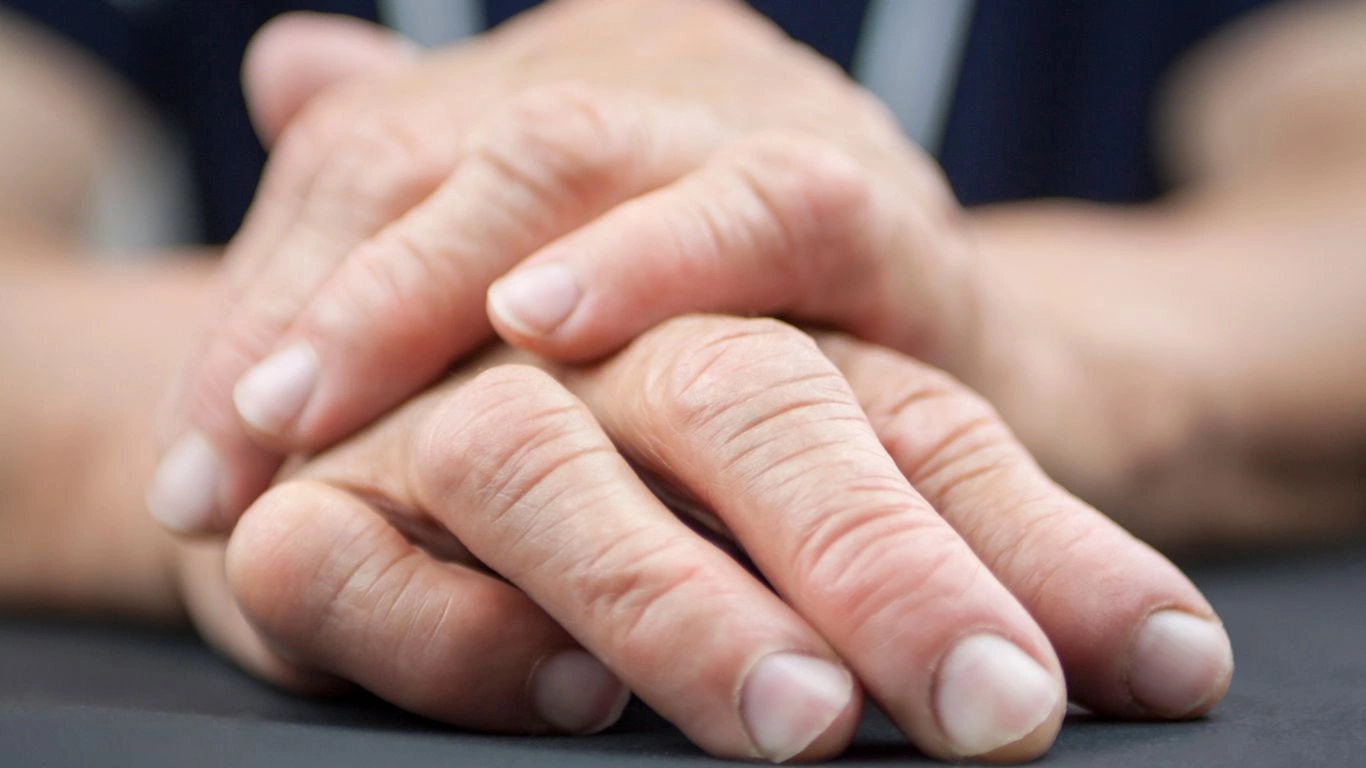How Rheumatoid Arthritis Affects Social Life: Tips to Stay Connected
Rheumatoid arthritis (RA) is much more than just a physical condition. As a chronic autoimmune disease, it affects not only the joints but can also have a profound impact on an individual’s overall life, including their social relationships and activities. The pain, fatigue, and stiffness caused by RA can make even the simplest tasks challenging. What’s often overlooked, though, is how these physical limitations extend into the social aspects of life, affecting everything from work and family time to friendships and leisure activities. In my experience as a Rheumatoid Arthritis expert, I’ve seen how debilitating these effects can be on a patient’s social life. That’s why it’s crucial to address not just the physical but also the emotional and social hurdles that come with this condition.
Understanding Rheumatoid Arthritis and Its Impact on Daily Life

Before diving into how RA affects social life, it’s important to first understand what this condition entails. Rheumatoid arthritis is an autoimmune disorder where the immune system mistakenly attacks the body’s own tissues, primarily the joints. Over time, this leads to joint inflammation, pain, and damage. The severity of the disease can vary from person to person. For some, it’s a mild nuisance; for others, it can be utterly debilitating. Regardless of severity, one common experience among those with RA is the unpredictability of flare-ups, which can happen at any time, often without warning.
One of the first things I notice in my patients is how RA can disrupt daily routines. From getting out of bed in the morning to attending social gatherings, the chronic pain and fatigue can make even the most mundane tasks feel impossible. For someone who used to be active or socially engaged, this can be an emotional blow. I’ve had patients tell me how they dread making plans with friends or family because they’re unsure whether they’ll be physically up to it. This uncertainty can create feelings of isolation, frustration, and anxiety.
How Rheumatoid Arthritis Affects Social Life

Rheumatoid arthritis can affect your social life in so many ways. It’s not just about the physical pain—it’s about how that pain alters your ability to interact with the world around you. From avoiding social events to dealing with the emotional consequences of missing out, the impact on one’s social life is profound. As someone who’s worked with numerous RA patients, I’ve seen firsthand how these social hurdles develop and how they evolve over time.
The Strain on Friendships
When living with RA, one of the first things that changes is how you interact with your friends. Activities you once enjoyed together, like going out for a walk, attending a concert, or just grabbing a cup of coffee, may no longer be possible due to the physical limitations of RA. Over time, this can create tension or distance between friends who don’t fully understand the struggle.
- Unmet expectations: Friends may start to feel frustrated or disappointed if you’re frequently canceling plans. While they might understand at first, repeated cancellations or withdrawal from activities can create feelings of resentment or confusion.
- Difficulty explaining: Often, people without RA may not realize the level of discomfort or fatigue you’re experiencing. Trying to explain your pain to others can be challenging, especially when you don’t want to seem like you’re constantly complaining.
- Feeling left out: There’s also the emotional aspect—watching your friends have fun without you can lead to feelings of exclusion or loneliness. It’s not always easy to admit that you feel left out, but these feelings are common among those with chronic conditions like RA.
In my practice, I’ve seen how maintaining these friendships requires both understanding and effort from both sides. Friends may need education on RA’s limitations, and you, as the person with the condition, may need to find new ways to connect with them, even if it’s not in the traditional sense.
Impact on Family Relationships
Family dynamics can also take a hit when one member has rheumatoid arthritis. For example, I’ve worked with a lot of patients who are parents. The inability to lift a child, play games, or even attend school events because of joint pain can be heartbreaking. Parents with RA often feel guilty about not being able to fully participate in their children’s lives, leading to stress and frustration within the family.
- Emotional strain: The pain and fatigue often leave people with RA feeling emotionally drained, making it harder to keep up with the demands of family life. This can sometimes lead to misunderstandings or conflict between spouses or other family members.
- Role reversal: In many cases, family members may need to step in and take on more responsibilities, whether that’s helping with housework, caring for children, or managing finances. This shift can cause a sense of guilt or even resentment on both sides.
- Loss of shared activities: Families often bond over shared activities. For someone with RA, those activities may need to be modified or even canceled, which can cause a feeling of loss or frustration.
It’s essential to communicate openly with your family about how you’re feeling. Sharing your struggles with your spouse, children, or other loved ones can help them understand the challenges you’re facing. It’s also important for family members to educate themselves about RA and how they can help support you in a way that doesn’t add pressure.
Managing Social Interactions with Rheumatoid Arthritis

While RA undoubtedly presents challenges for social life, there are ways to manage and adapt. Many of my patients have found that with a little planning, lifestyle adjustments, and support, they can continue to maintain meaningful social connections. It might not be easy, but it’s possible.
Here are a few tips I often share with my patients:
- Be honest about your limitations: It’s important to be upfront with friends and family about what you can and can’t do. Setting realistic expectations helps prevent disappointment and feelings of guilt.
- Adapt activities: You may not be able to do everything you used to, but you can adapt. For example, instead of hiking, consider a leisurely walk in the park or a seated yoga class with friends.
- Prioritize self-care: Taking care of your physical and emotional health should always come first. Don’t feel bad about needing rest or time for yourself. True friends will understand.
Adjusting Your Social Life Around Rheumatoid Arthritis

As we discussed in Part 1, RA can have a significant impact on your social life. But here’s the good news: you can adjust your lifestyle to minimize the disruptions that RA can cause to your social interactions. I’ve worked with many patients over the years who’ve learned how to strike a balance between managing their condition and maintaining fulfilling social connections. It’s not always easy, but it’s possible to still enjoy life and stay engaged with the people who matter most to you.
Finding New Ways to Stay Socially Connected
One of the first things I advise my patients is to get creative with how they stay connected. While it might not be the same as going out for a night on the town, there are plenty of ways to enjoy time with others without putting yourself at risk of overexertion. I’ve seen patients bond over virtual hangouts, home-cooked dinners, and more relaxed outings, proving that you don’t need to follow the traditional “socializing norms” to enjoy life with RA.
- Video calls: Virtual meetups can be a game-changer. Whether it’s a Zoom call with friends or a casual FaceTime with family, these digital interactions offer a chance to connect without the physical strain of going out. Plus, you can be in the comfort of your own home, which can make it easier to manage your RA symptoms.
- Small gatherings: Hosting a small, low-key gathering at home can allow you to spend quality time with friends and family without overexerting yourself. Maybe a movie night or a cozy dinner with close ones? This way, you can stay connected while respecting your body’s limits.
- Alternative hobbies: Explore hobbies that can be done from home or in more controlled environments. For example, crafting, writing, or even online games can help you stay engaged with your social circles, without the physical strain.
From personal experience, I know that it’s easy to fall into the trap of thinking you have to keep up with others’ social expectations. But adapting your social life to fit your needs doesn’t mean you’re missing out—it simply means you’re making adjustments to maintain your wellbeing while still having fun with the people you care about. And remember, true friendships aren’t about the grand gestures, but the little moments shared together.
Maintaining Your Self-Esteem While Managing RA
Let’s face it, dealing with a chronic illness like rheumatoid arthritis can often chip away at your self-esteem. The fatigue, the pain, and the fact that you can’t always keep up with your peers can make you feel isolated or even inadequate. But one of the most powerful things you can do is find ways to boost your self-esteem and maintain a positive self-image, despite the limitations that RA imposes on you. It’s all about mindset and finding a new sense of balance in your life.
I’ve had numerous conversations with patients who felt like they were losing their identity to RA. Whether it’s no longer being able to engage in their favorite hobbies or the difficulty of dressing or grooming themselves, the mental toll can sometimes be just as overwhelming as the physical. However, there are a few ways to help preserve that sense of self:
- Practice self-compassion: Being kind to yourself is one of the most important things you can do. There’s no shame in having limitations, and there’s no need to feel guilty for needing to rest or take breaks. Practice speaking to yourself the way you would a close friend who’s going through a tough time.
- Focus on your strengths: RA might change how you do things, but it doesn’t change who you are. Take time to recognize the strengths you still have—whether it’s a supportive family, a deep knowledge of something you’re passionate about, or even the ability to make people smile when you’re with them.
- Embrace new activities: Just because you can’t do everything you used to do doesn’t mean you can’t find new hobbies or passions. There’s a world of opportunities waiting to be explored. Taking up something new can help you rediscover a sense of purpose and confidence.
Building a Support System for Socializing with Rheumatoid Arthritis

Having a strong support system is crucial when navigating the challenges of rheumatoid arthritis. It’s not just about finding people who can help when you need it, but about surrounding yourself with those who truly understand what you’re going through. From family and friends to support groups and online communities, finding people who empathize with you can make a world of difference in maintaining a fulfilling social life despite the challenges of RA.
Family and Friends: Your Inner Circle
Your immediate family and close friends are often the first people to notice when something’s off. They are also the people who can offer the most support, whether it’s helping you physically or emotionally. But here’s the thing: in order for them to be effective in supporting you, it’s essential to keep the lines of communication open. Let them know how you’re feeling, what you need, and what you’re struggling with. This might sound basic, but it’s incredibly effective. From my experience, most people want to help—they just need to know how.
- Be open about your limitations: If you’re feeling particularly tired or in pain, don’t be afraid to say so. Asking for help isn’t a sign of weakness—it’s a sign of self-awareness and strength.
- Set boundaries: With a chronic condition like RA, it’s important to set healthy boundaries. Let your loved ones know if you need rest or time alone, and don’t feel guilty about it. A little space can help you recharge and manage the emotional and physical toll of RA.
Support Groups and Online Communities
Another valuable resource is connecting with others who are living with rheumatoid arthritis. Support groups, whether in person or online, offer a space where you can share your experiences, vent, and get advice from people who truly understand what you’re going through. Many patients I’ve worked with have found these groups to be a lifeline—they not only offer emotional support but practical tips and encouragement to help you live your best life with RA.
Online communities, like forums or social media groups dedicated to RA, can also provide a sense of belonging. Being able to interact with others who are dealing with the same challenges makes you feel less alone and more empowered to continue navigating the ups and downs of life with rheumatoid arthritis.
Redefining Social Success with RA

At the end of the day, social success doesn’t have to look the same as it did before your RA diagnosis. It’s about redefining what connection means to you. For some, it may mean keeping a smaller circle of close friends who understand their limits, while for others, it might involve finding new ways to engage in group activities. The key is to remain flexible, open-minded, and proactive in making your social life work for you—while still honoring your health and well-being.
Living with RA doesn’t mean you have to isolate yourself or give up on socializing altogether. With the right mindset, support system, and a bit of creativity, you can still maintain strong social connections and lead a fulfilling life, even with the challenges of this chronic condition. So take it one day at a time, and remember, there’s always a way to stay connected—whether that’s with a few close friends, family, or an online community that understands your struggles.
Managing the Mental Health Impact of Rheumatoid Arthritis on Social Life

Beyond the physical limitations of rheumatoid arthritis (RA), the mental health toll it takes on individuals is equally significant. Dealing with chronic pain, fatigue, and the unpredictability of flare-ups can understandably lead to emotional distress, anxiety, and depression. Over the years, I’ve seen this firsthand in my patients. RA doesn’t just change how you live day-to-day—it also impacts how you feel about yourself, your relationships, and your place in the world. And this is where the connection between mental health and social life becomes crucial.
The emotional struggles caused by RA can often be just as debilitating as the physical ones. In fact, many people with RA experience a sense of loss when it comes to their previous social life. The frustration of not being able to participate in social activities they once enjoyed can lead to feelings of isolation, loneliness, and even guilt. However, there are ways to manage these emotional challenges so you can continue to foster meaningful relationships and improve your quality of life.
Recognizing and Addressing Mental Health Challenges
Many individuals living with rheumatoid arthritis experience mental health issues that go unrecognized or untreated. It’s not uncommon for someone with RA to initially dismiss feelings of sadness, frustration, or anxiety as just “part of the disease.” But mental health is just as important as physical health, and addressing any emotional challenges is key to maintaining a balanced, healthy life.
- Recognize the signs: If you notice a shift in your mood, such as increased irritability, feelings of hopelessness, or withdrawing from social activities, it’s time to pay attention. These may be signs of depression or anxiety, which are common among people with chronic conditions like RA.
- Talk about it: Don’t hesitate to share your emotional struggles with a trusted friend, family member, or even a therapist. I always encourage my patients to open up about their mental health as part of their overall treatment plan. Talking about how you feel can help release pent-up frustration and provide valuable perspective.
- Seek professional help: If your emotional struggles are overwhelming, consider seeking therapy or counseling. Cognitive-behavioral therapy (CBT) has proven to be especially effective for people managing chronic illnesses, helping individuals learn coping mechanisms and ways to reframe negative thought patterns.
It’s important to remember that mental health isn’t something you have to tackle alone. There are resources, both in-person and online, that can provide the support you need. Taking steps to manage your mental health will ultimately enhance your social life by helping you feel more emotionally available to your loved ones and better equipped to participate in social interactions.
Maintaining a Work-Life Balance with Rheumatoid Arthritis

For many individuals with rheumatoid arthritis, work is a big part of their social life and overall identity. But RA often makes it challenging to keep up with the demands of a typical workday. The fatigue, joint pain, and occasional flare-ups can make it tough to maintain a consistent work schedule, and sometimes even cause individuals to have to take time off. In my experience, one of the most difficult adjustments my RA patients face is learning how to balance work with their health and social needs.
Communicating with Your Employer and Colleagues
If you have RA and are working, one of the most important steps you can take is communicating openly with your employer and colleagues. This might feel intimidating at first, but I’ve found that most workplaces are willing to accommodate employees with chronic conditions once they are made aware of the situation. Sharing your needs and limitations can ensure that you aren’t pushing yourself too hard and that your workplace is supportive of your condition.
- Requesting accommodations: If you need adjustments to your work environment, such as a more ergonomic desk setup, a flexible work schedule, or the ability to work from home on difficult days, don’t be afraid to ask for them. The Americans with Disabilities Act (ADA) offers protections for employees with chronic conditions, including RA.
- Disclosing your condition: While it’s entirely up to you whether or not to disclose your RA diagnosis, sharing this information with a trusted supervisor or HR representative can open up conversations about potential accommodations and understanding when you need time off for medical reasons.
- Setting boundaries: It’s also crucial to set boundaries in your work life to avoid burnout. Know your limits and make sure you’re not overcommitting to tasks that may exacerbate your RA symptoms. It’s okay to say “no” to certain requests when you’re feeling overwhelmed.
By setting up a work environment that supports your needs, you’ll be able to focus on your job without putting your health at risk. And by managing your work-life balance, you’ll have more time and energy to dedicate to your social life, without feeling like you’re compromising your health or relationships.
Living with Rheumatoid Arthritis and Maintaining Your Social Circle
One of the most challenging aspects of living with RA is the fear of losing your social circle. It’s easy to feel disconnected when you can’t participate in the same activities or events as before. But I always remind my patients that friendships and relationships are about more than just physical presence—they’re about the emotional connections you share with others. You might not be able to attend every social event, but that doesn’t mean you can’t continue nurturing the relationships that matter most.
How to Stay Engaged in Your Social Circle
Even if you can’t be as physically active as you once were, there are still plenty of ways to stay involved in your social circle and maintain strong connections with friends and family. Here are a few tips that I’ve found helpful for people with RA:
- Stay in touch: Regular phone calls, text messages, or video chats can help you stay connected with friends and family, even when you’re not physically present. These simple interactions can keep you in the loop and let your loved ones know you’re still thinking of them.
- Invite people to you: Instead of always going out, try inviting friends over for low-impact social activities like board games, movie nights, or a shared meal. This way, you’re still able to maintain social connections while managing your physical limitations.
- Be patient with yourself: Socializing may look a little different when you have RA, but that doesn’t make it any less meaningful. Give yourself grace, and don’t feel bad if you need to cancel plans or take breaks from socializing when your symptoms flare up.
It’s about quality over quantity when it comes to maintaining a social circle. A few close relationships that are built on understanding and support will far outweigh a large number of acquaintances that don’t offer the same emotional depth.
References
For more information on living with rheumatoid arthritis and managing its impact on social life, consider exploring the following resources:
Disclaimer
The information provided in this article is for informational purposes only and should not be taken as medical advice. Always consult with your healthcare provider before making any changes to your treatment or lifestyle. Every person’s experience with rheumatoid arthritis is unique, and the advice given here may not apply to everyone.

Tarra Nugroho is a dedicated Nurse Practitioner with a strong foundation in family and preventive care. She brings both compassion and clinical expertise to her practice, focusing on patient-centered care and health education. As a contributor to Healthusias.com, Tarra translates medical knowledge into clear, empowering articles on topics like women’s health, chronic disease management, and lifestyle medicine. Her mission is simple: help people feel seen, heard, and informed—both in the clinic and through the content she creates. When she’s not caring for patients, Tarra enjoys weekend hikes, plant-based cooking, and curling up with a good health podcast.







